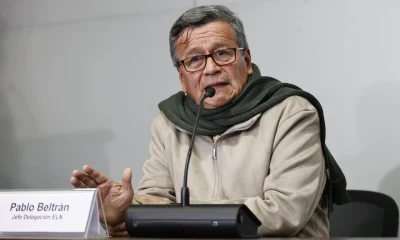International
Fifth cycle of peace talks between the Colombian Government and the ELN come to an end
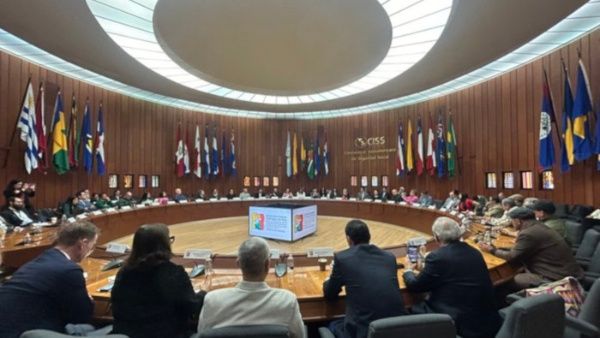
December 18 |
The fifth cycle of peace talks between the Government of Colombia and the National Liberation Army (ELN) concluded this Sunday in Mexico City with six agreements that reinforce the willingness of the two parties to move forward in the negotiations, which began last year.
Of the agreements, the first is a reaffirmation of the agreement reached here in Mexico last March. Two, the suspension of withholdings for economic purposes as part of the extension of the ceasefire that ends in January and will now be extended.
Three, the creation of conditions for the extension of the ceasefire, a verification mechanism and measures against the actions of paramilitary forces and armed groups. Four, the creation of economic and financial conditions to materialize the Mexico agreement.
Five, the resumption of the process of participation of society to be designed in April of next year. Six, the creation of eight critical zones of humanitarian action. It was announced that the sixth cycle of dialogues will be held in Cuba on January 22.
The head of the government delegation, Vera Grabe, also announced that other agreements are the extension of the ceasefire, the creation of an observatory to work on the issue of paramilitarism, the consolidation of 8 peace zones, humanitarian actions for ELN political prisoners and the provision of information on people in captivity.
For his part, the head of the ELN delegation, alias Pablo Beltrán, affirmed that the guerrillas and the Colombian government are pursuing the same goal: peace.
“We are partners, we are responsible for building that mandate,” he stressed at the same event.
For this reason, he affirmed that the Peace Dialogues are a contribution to change the culture of confrontation and to seek conciliation in the South American country.
However, he pointed out that it is difficult to advance in the construction of peace when there are media wars and progress is forgotten, focusing only on conflicts and tensions.
“We delegations express our recognition and gratitude to the people and government of the United Mexican States, for their support to this process and for having hosted the V Cycle of Dialogues for Peace,” both delegations indicated after the closing ceremony of the event.
They also thanked Cuba for its support to this process and announced that the country will host the VI Cycle starting on January 22, 2024 and that it will facilitate the Inter-Cycle Contact Point of the Dialogue Table.
The text of the agreements was read in a ceremony attended by senior Colombian government officials, leaders of the ELN mission, guests from the group of guarantor countries, representatives of the United Nations and the Colombian Catholic Church, among others.
The guarantor countries are represented by Brazil, Cuba, Chile, Mexico, Norway and Venezuela, the permanent accompaniers are the Colombian Episcopal Conference and the UN Secretary General, in addition to the Group of Accompanying, Support and Cooperation Countries (GPAAC), made up of Germany, Spain, Sweden and Switzerland.
International
Trump urges Putin to reach peace deal
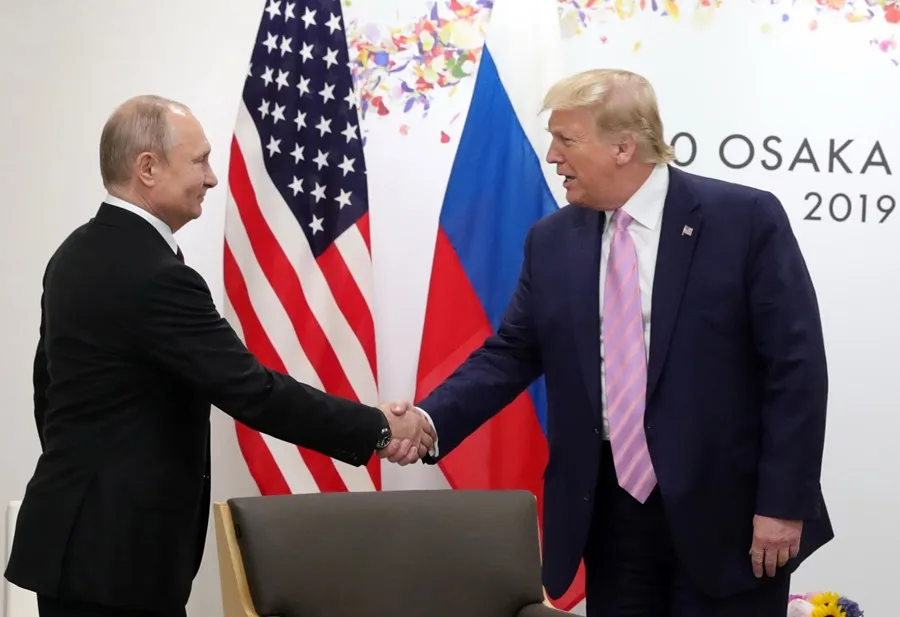
On Monday, U.S. President Donald Trump reiterated his desire for Russian President Vladimir Putin to “reach a deal” to end the war in Ukraine, while also reaffirming his willingness to impose sanctions on Russia.
“I want to see him reach an agreement to prevent Russian, Ukrainian, and other people from dying,” Trump stated during a press conference in the Oval Office at the White House.
“I think he will. I don’t want to have to impose secondary tariffs on Russian oil,” the Republican leader added, recalling that he had already taken similar measures against Venezuela by sanctioning buyers of the South American country’s crude oil.
Trump also reiterated his frustration over Ukraine’s resistance to an agreement that would allow the United States to exploit natural resources in the country—a condition he set in negotiations to end the war.
International
Deportation flight lands in Venezuela; government denies criminal gang links

A flight carrying 175 Venezuelan migrants deported from the United States arrived in Caracas on Sunday. This marks the third group to return since repatriation flights resumed a week ago, and among them is an alleged member of a criminal organization, according to Venezuelan authorities.
Unlike previous flights operated by the Venezuelan state airline Conviasa, this time, an aircraft from the U.S. airline Eastern landed at Maiquetía Airport, on the outskirts of Caracas, shortly after 2:00 p.m. with the deportees.
Interior Minister Diosdado Cabello, who welcomed the returnees at the airport, stated that the 175 repatriated individuals were coming back “after being subjected, like all Venezuelans, to persecution” and dismissed claims that they belonged to the criminal organization El Tren de Aragua.
However, Cabello confirmed that “for the first time in these flights we have been carrying out, someone of significance wanted by Venezuelan justice has arrived, and he is not from El Tren de Aragua.” Instead, he belongs to a gang operating in the state of Trujillo. The minister did not disclose the individual’s identity or provide details on where he would be taken.
International
Son of journalist José Rubén Zamora condemns father’s return to prison as “illegal”
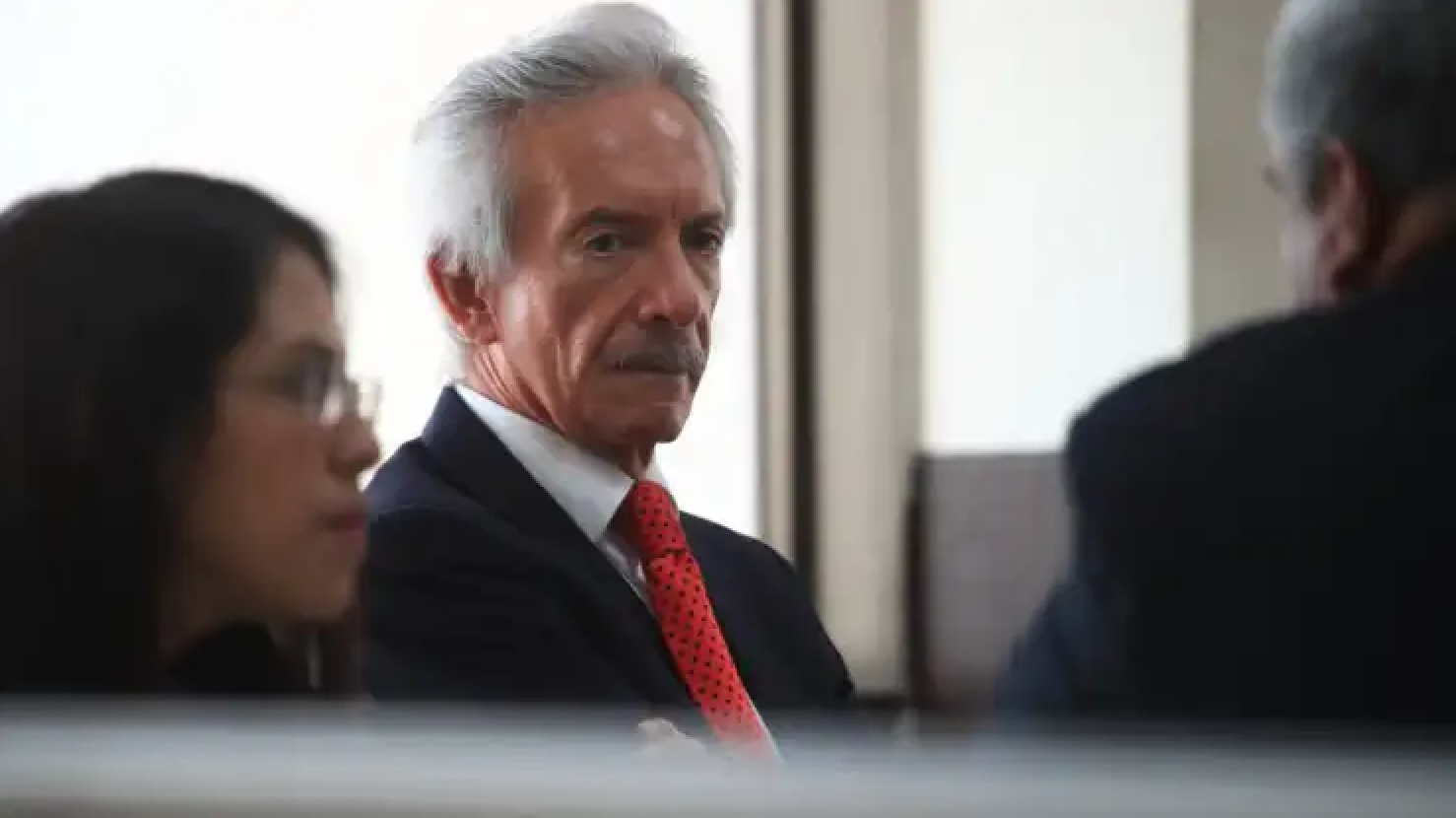
The son of renowned journalist José Rubén Zamora Marroquín, José Carlos Zamora, has denounced as “illegal” the court order that sent his father back to a Guatemalan prison on March 3, after already spending 819 days behind barsover a highly irregular money laundering case.
“My father’s return to prison was based on an arbitrary and illegal ruling. It is also alarming that the judge who had granted him house arrest received threats,” José Carlos Zamora told EFE in an interview on Saturday.
The 67-year-old journalist was sent back to prison inside the Mariscal Zavala military barracks on March 3, when Judge Erick García upheld a Court of Appeals ruling that overturned the house arrest granted to him in October. Zamora had already spent 819 days in prison over an alleged money laundering case.
His son condemned the situation as “unacceptable”, stating that the judge handling the case “cannot do his job in accordance with the law due to threats against his life.”
-

 Central America5 days ago
Central America5 days agoNicaragua denounces Costa Rica’s position in SICA as aligned with foreign interests
-

 Central America5 days ago
Central America5 days agoNicaragua’s new judicial law consolidates power in Ortega and Murillo’s hands
-
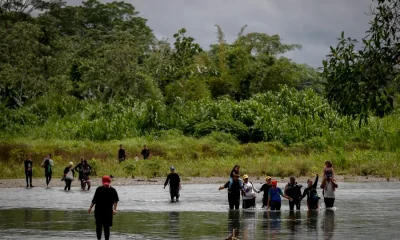
 Central America5 days ago
Central America5 days agoPanama’s president declares Darién gap ‘closed’ amid sharp drop in migrant flow
-

 International3 days ago
International3 days agoSon of journalist José Rubén Zamora condemns father’s return to prison as “illegal”
-

 International5 days ago
International5 days agoMarco Rubio warns Venezuela against military action against Guyana
-

 International3 days ago
International3 days agoMiyazaki’s style goes viral with AI but at what cost?
-

 Central America2 days ago
Central America2 days agoPanama police clarifies that Interpol alert for Martinelli is still pending
-

 Central America20 hours ago
Central America20 hours agoU.S. Homeland Security Secretary urges Mexico to strengthen Guatemala border
-

 International20 hours ago
International20 hours agoTrump urges Putin to reach peace deal
-

 International2 days ago
International2 days agoDeportation flight lands in Venezuela; government denies criminal gang links
-

 Central America20 hours ago
Central America20 hours agoPanama grants Martinelli 72-hour extension to travel to Nicaragua
-
Central America4 days ago
Nicaragua revokes legal status of 10 more NGOs, bringing total to over 5,600
















